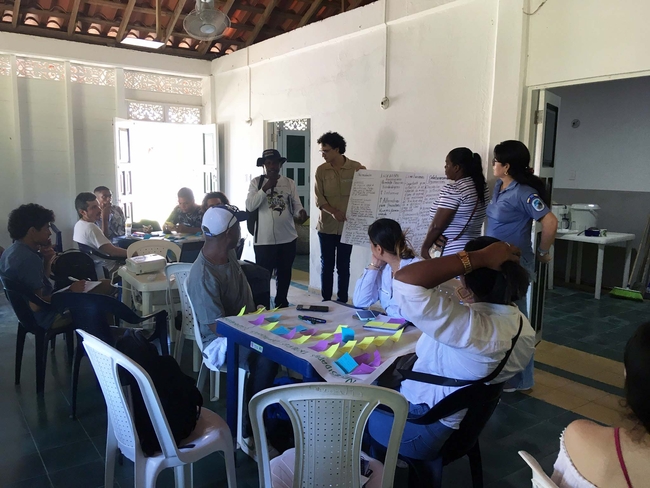28/08/2023 | The potential of vegetated coastal ecosystems, such as mangrove forests, seagrass beds and salt marshes, to store blue carbon is becoming increasingly important as a nature-based solution in the fight against climate change. Since 2021, the ZMT-led sea4soCiety project has been investigating innovative approaches to improve said carbon storage potential. But that is only one side of the venture. As the name suggests, “society” – more precisely local actors and stakeholders – are at the very heart of this collaborative research project.
Professor Martin Zimmer, sea4soCiety coordinator, says: “Only close cooperation and communication with local communities will enable us to evaluate potential benefits and risks of increasing the carbon storage potential of coastal ecosystems beyond their current stocks.”
Any management measures suggested by the researchers have to meet societal requirements and create additional benefits, he adds.
“Societal acceptance is the key”, Zimmer stresses. “Local people need to be happy with approaches to improve carbon storage in their coastal ecosystems. The implementation of any such actions requires local stewardship and ownership and that can only be developed by working together.”
This determined focus on stakeholder involvement as a crucial part of the project has now caught the attention of the Federal Agency for Nature Conservation (BfN - Bundesamt für Naturschutz) and the Center for Development Research (ZEF - Zentrum für Entwicklungsforschung) in Germany as well as the Global Mangrove Alliance (GMA) through one of their major actors, the US-based global environmental organisation The Nature Conservancy (TNC).
The three institutions will include sea4soCiety in their own research, thus also acknowledging the project’s societal impacts.
BfN has recently launched a project on "The Social Dimension of Research and Implementation of Nature-based solutions: Utilising Synergies for Biodiversity and Climate" (BioClimSocial) implemented by ZEF. The work of sea4soCiety researchers in Colombia, involving communication with local actors and co-designing the second phase of the project with regional partners from academia and the national parks authorities, will serve as a showcase within BioClimSocial.
At present, Global Mangrove Alliance through TNC, is reviewing the utilisation of Local Ecological Knowledge (LEK) in mangrove conservation and restoration. The organisation is conducting case studies of restoration projects that use local knowledge and engage with the providers of such knowledge. sea4soCiety has been invited to be featured as a case study in GMA’s endeavours in both Colombia and Malaysia.
About sea4soCiety:
The research project “sea4soCiety” is one of six consortia within the research mission »Marine Carbon Sinks in Decarbonization Pathways« (CDRmare) of the German Marine Research Alliance (DAM). It is financed by the Federal Ministry for Education and Research (BMBF) and coordinated by ZMT.





